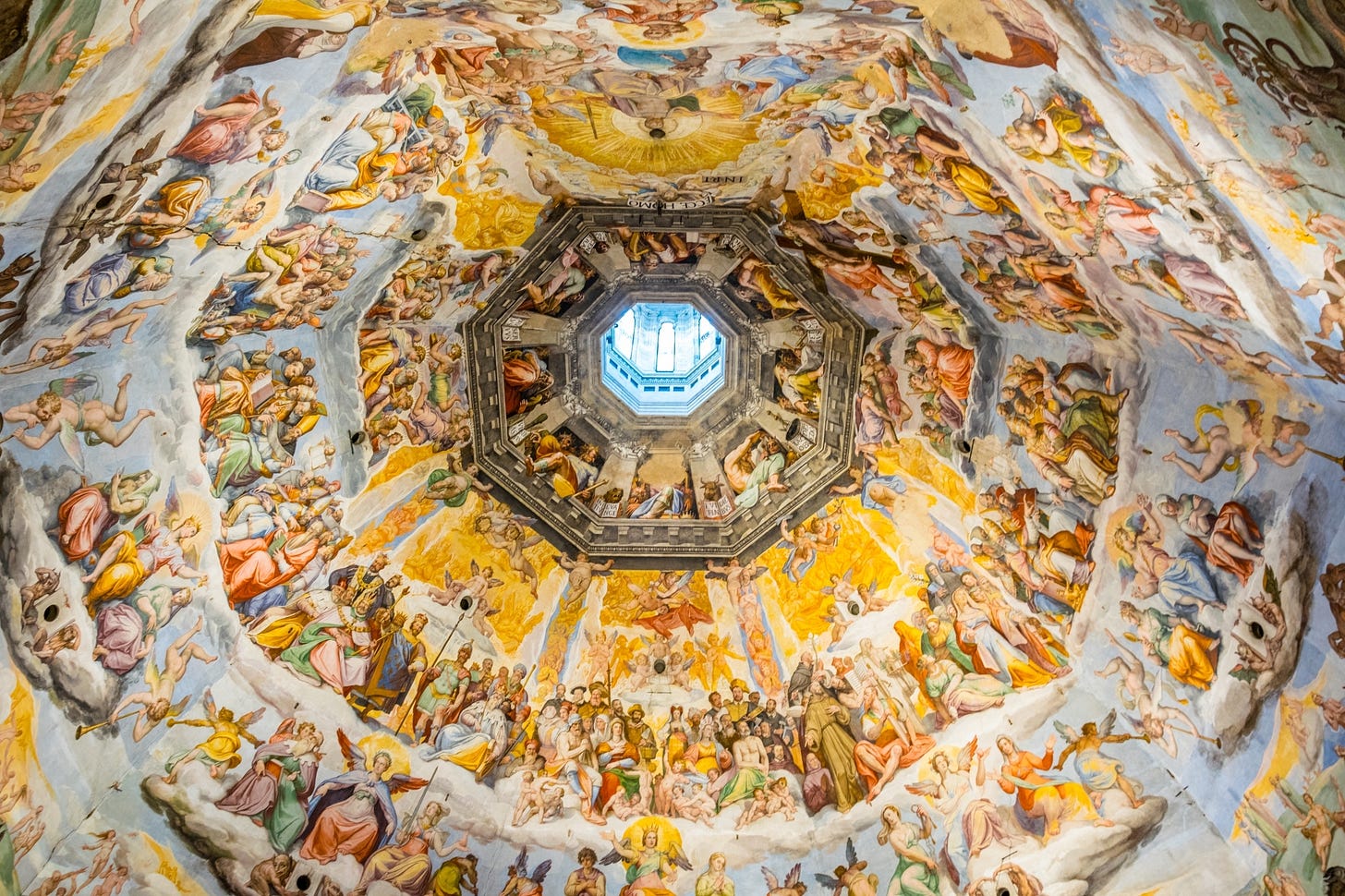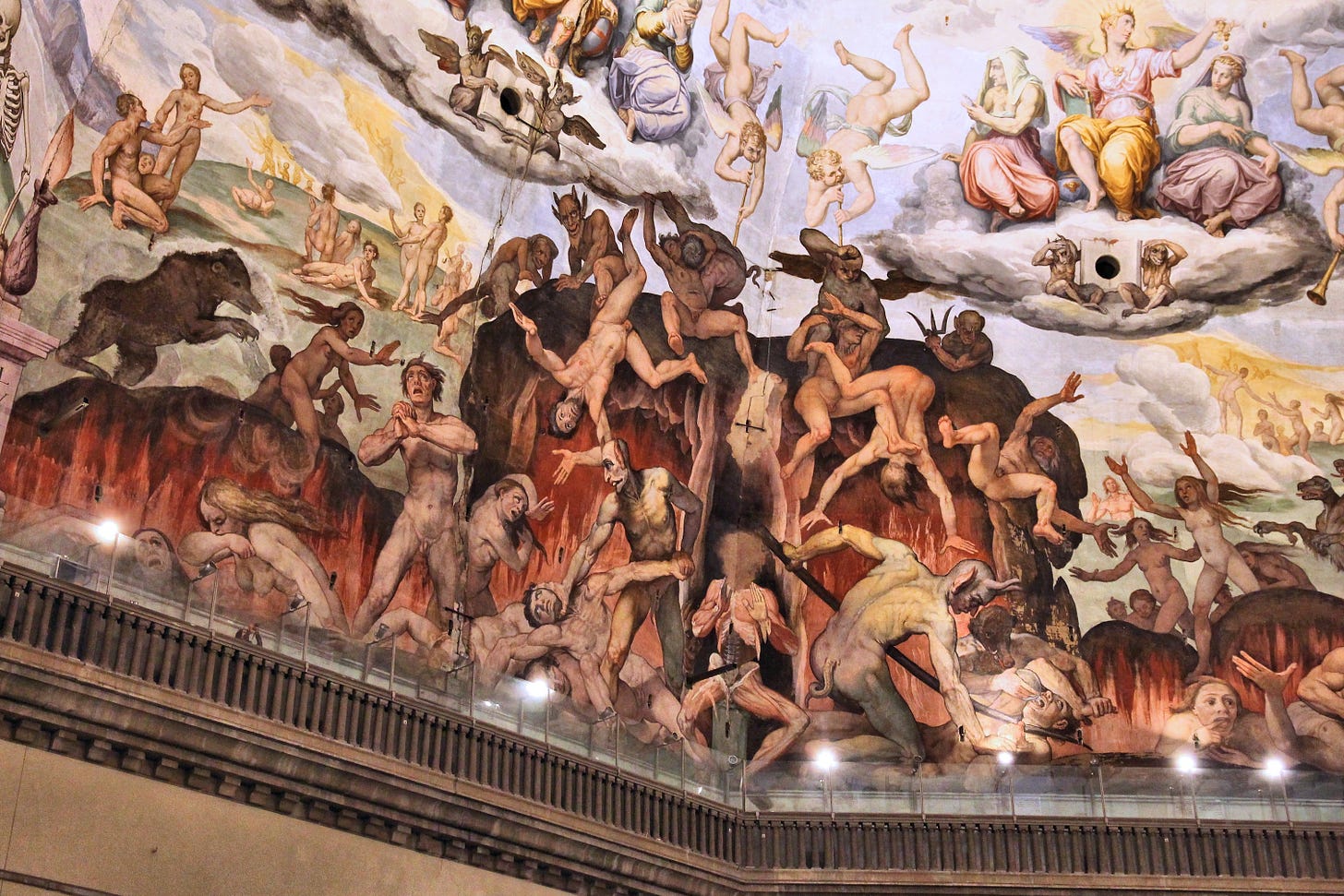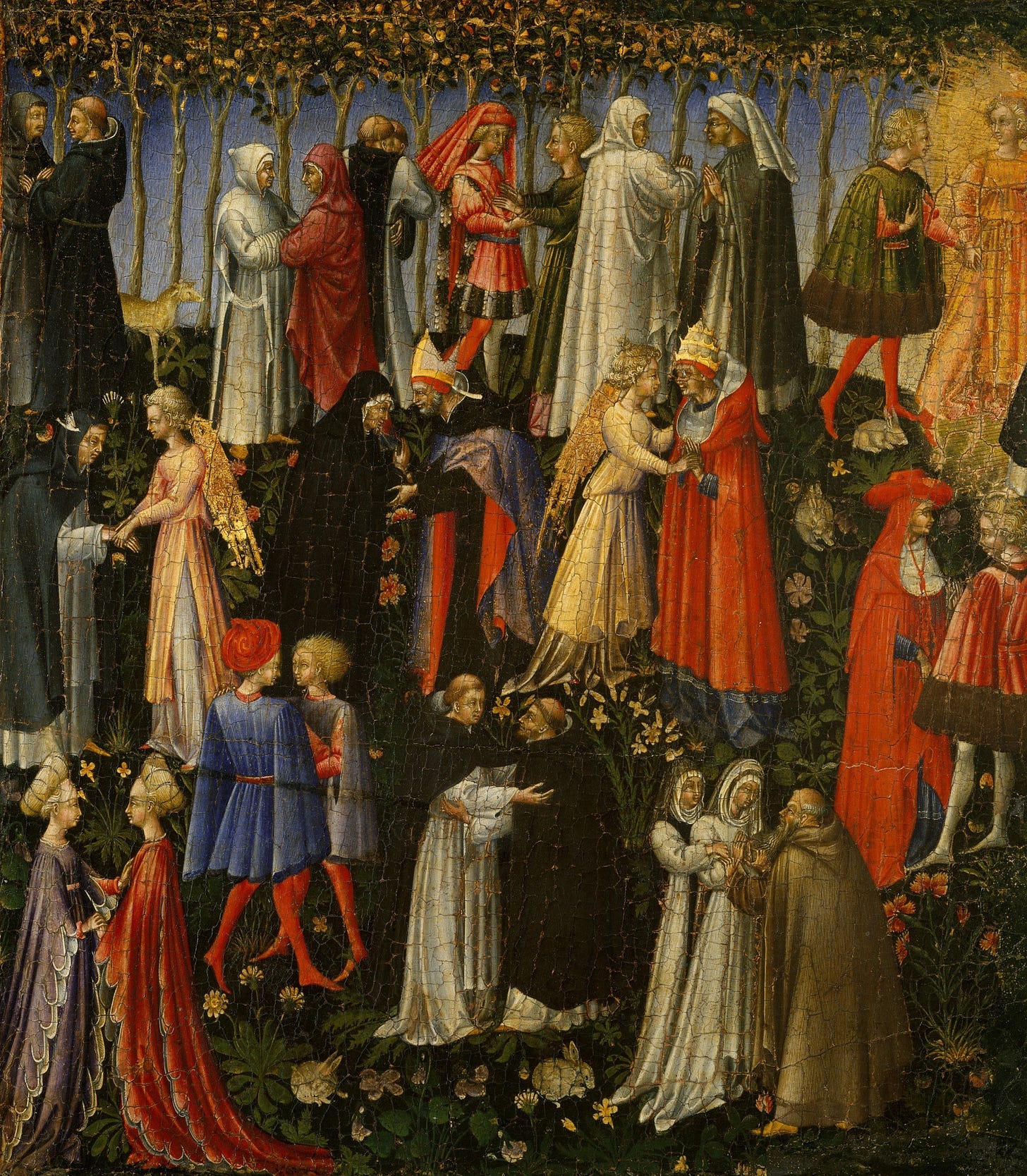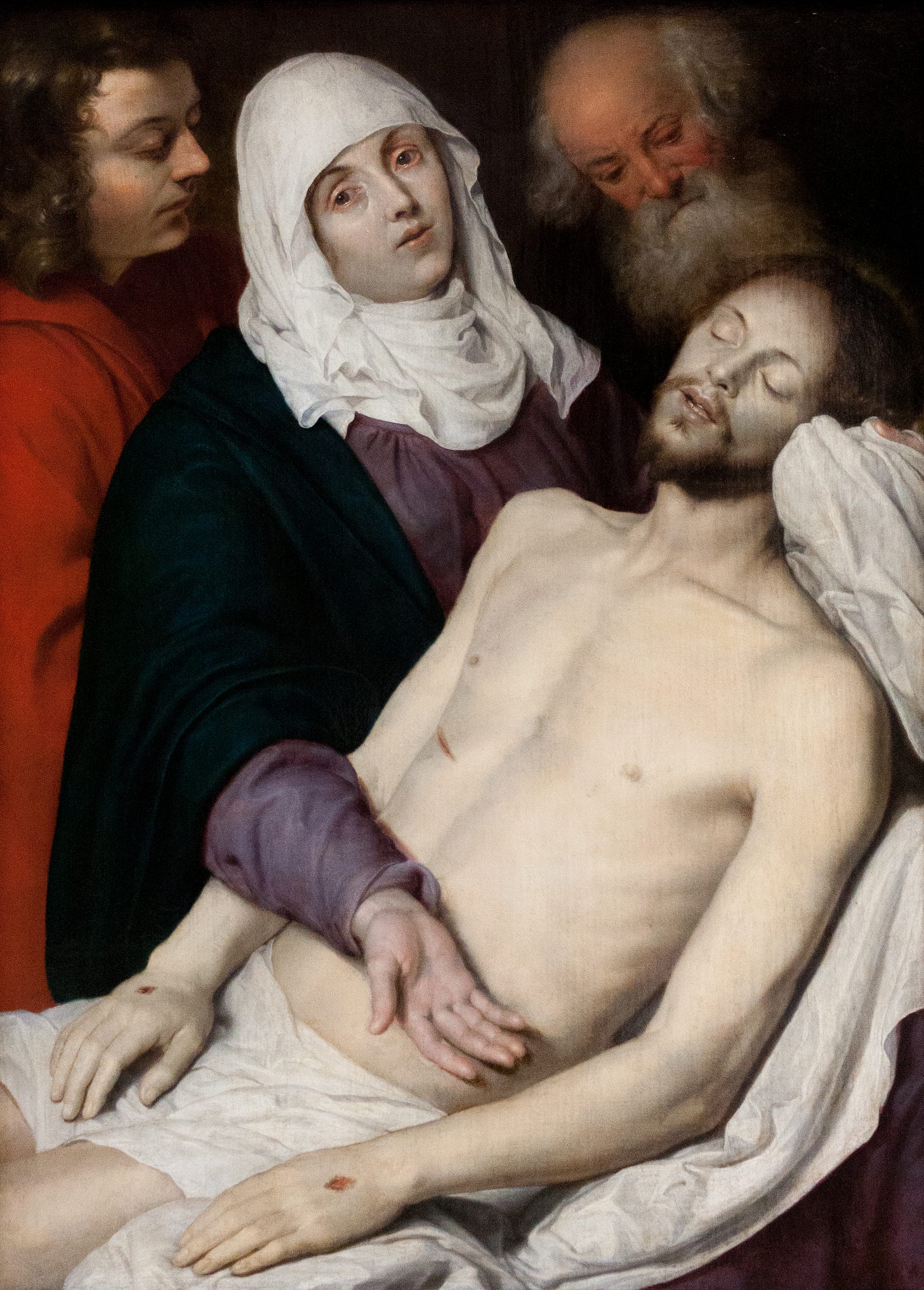One day is as a thousand years, and a thousand years as one day.
- 2 Peter 3:8
Dear Matthias,
It seems like only yesterday and yet a lifetime ago that we were drinking bad beer in a Charlottesville dive. We had not seen each other in years but were still as close as we had been as teenagers, and when I announced that I was planning to ask my girlfriend to marry me, you congratulated me—by buying me more bad beer.
For whatever reason, we were also arguing about heaven. You informed me that even if it existed (which it did not) it would be horrible because it would be unbelievably boring, as doing anything forever, even the most wonderful things imaginable, would eventually become dull, and we would all long for oblivion.
Knowing you for a Deadhead, I said that heaven was like the greatest version of “Dark Star” ever, and it went on forever too. Sadly, there was no jukebox to illustrate my point.
In later years, though, I have wondered if the better comparison might be the internet. It has some of the paradoxes we normally associate with heaven: it allows one to be everywhere and nowhere; time disappears, and the borders between self and other become hazy, if they do not dissolve; it is a source of fascination and delights that somehow never sate our appetites for more.
In fact, as I hope to convince you, life in heaven will be even better than life online. For whereas the paradoxes of the internet often bring out the worst aspects of humanity, the paradoxes of heaven aim to resolve the limitations and tragedies inherent in mortal life.
Shiny Objects
The best description of the internet I know is in Patricia Lockwood’s recent novel, No One Is Talking About This, about a young woman who is extremely online. “‘What are you doing?’ her husband asked softly … What was she doing? Couldn’t he see her arms all full of the sapphires of the instant?”
The “sapphires of the instant” is exactly right. The internet is an endless scroll of fascinating objects. She, Lockwood’s narrator, only needs to open “the porthole” and she is drawn in by enthralling images: “close-ups of nail art, a pebble from outer space, a tarantula’s compound eyes, a storm like canned peaches on the surface of Jupiter, Van Gogh’s The Potato Eaters, a Chihuahua perched on a man’s erection…” The novel is composed of short, disconnected paragraphs, which imitate—better than any literary effort I have read before—the cascading speed and effect of the internet scroll itself.
Heaven, too, on many accounts, is a dazzling array of shining objects. In the Book of Revelation, John declares “The New Jerusalem has the glory of God and a radiance like a very rare jewel, like jasper, clear as crystal” (Rev. 21:11). Likewise, “The city is pure gold, clear as glass. The foundations of the wall of the city are adorned with every jewel … And the twelve gates are twelve pearls, each of the gates is a single pearl, and the street of the city is pure gold, transparent as glass” (Rev. 21:19-21). A seventh-century Irish Abbot takes a mystical flight to heaven, where he sees the crystal floors of the heavenly city “shot with blue, and purple, and green.” In the medieval Vision of Paul, the titular character is led to the heavenly city, where “Turning round I saw golden thrones placed in each gate, and on them men having golden diadems and gems … so that no one is able to recount their praise.” In the 30th canto of Dante’s Paradiso the pilgrim spies “light pouring its splendor from two banks painted with marvelous spring. From that torrent came forth living sparks and they settled on the flowers on either side, like rubies set in gold.”
Beautiful imagery, but it also makes no sense. How can a city be pure gold and clear as glass? How can the light look like water and fire and flowers? I contend that the images are not really supposed to make sense. The paradoxes are precisely what draws the viewer on: the more mysterious and delightful the images are, the more the viewer wishes to see—in a way that confounds our normal human law of diminishing returns. As George Herbert says after one of his glimpses of divine pleasure, “Thy short abode and stay / Feeds not, but addes to the desire of meat.”
A Chance to Enjoy the Suffering of Others
Easily one of the most prevalent feelings on the internet is schadenfreude, the pleasure of hating someone and then seeing that someone brought low. As Lockwood’s narrator observes, “every day their attention must turn, like the shine on a school of fish, all at once, toward a new person to hate. Sometimes the subject was a war criminal, but other times it was someone who made a heinous substitution in guacamole.” The popularity of online sadism isn’t hard to fathom. Could any feeling be so delectable as righteous cruelty?
Apparently not, for looking down on the damned is often listed among the joys of heaven too. “No mercy affects the minds of the elect,” declared Gregory the Great, “they see the justice of the punishment of the damned and cannot regret it. Further, if they desired something that was not, they would desire something against God’s will, and their beatitude would be lessened.” Perfect happiness (beatitude) not only allows for, but also positively requires ruthless enjoyment of others’ pain. See also Thomas Aquinas, who points out that because things are known by their contraries, “in order that the happiness of the saints may be more delightful to them and that they may render more copious thanks to God for it, they are allowed to see perfectly the sufferings of the damned.” Just as the downfall of others online makes us feel better about ourselves, so too do the tortures of the damned underscore the joys of paradise.
Shall I make a confession, Matthias? This feeling is not unknown to me. Sometimes, I have enjoyed online schadenfreude that was not even excused by righteousness. For example, I once spent a happy hour watching online videos of failed marriage proposals. The karaoke bars were good. The stadium halftime shows were better.
The hour was happy, though morally repugnant. (The thought of my own impeding proposal may have clued me in here.) Also, happily, not everyone has shared Gregory and Aquinas’ estimation of God’s justice, in which people get what they deserve—and then get enough of it to fill eternity. In his systematic theology, The Christian Faith, Friedrich Schleiermacher considers the same situation but draws the opposite conclusion: “Now if we attribute to the blessed a knowledge of the state of the damned, it cannot be a knowledge unmixed with sympathy.” Why so? In brief,[1] God is love (1 John 1:14), and God’s love, through Christ, is expressed through His salvific mission to humanity, and the process of human salvation entails regeneration and sanctification, which means becoming Christ-like, and therefore loving each member of humanity more and more, meaning that the saved, by virtue of being saved, could not help but love and pity every one of the damned. “If the perfecting of our nature is not to move backwards,” explains Schleiermacher, “sympathy must be such as to embrace the whole human race, and when extended to the damned must of necessity be a disturbing element in bliss.” See where this is going? The saved are supposed to be perfectly happy in heaven, but the damned would disturb their bliss, so there can be no damned. All are saved.
Both the internet and heaven open up a radically extended knowledge of other people and their feelings, but whereas online this knowledge too often leads to envy, resentment, and even enjoyment of each other’s pain, heaven is a place where we are unable to do any of that, if Schleiermacher is to be believed (which he is, in this case). Instead, we can only enjoy each other’s happiness.
This has also been a roundabout way of saying, Matthias, that I could not be perfectly happy until you were there.
I and Thou and We
Lockwood is superb on the way the internet slowly blurs the boundaries between people. You might get sucked into an argument about body fungus on a “candida overgrowth board,” and pretty soon “you took up the candida overgrowth language; what began as the most elastic and snappable verbal play soon emerged in jargon, and then in doctrine, and then in dogma. Your behavior was subtly modified against humiliations, chastisements, censures you might receive on the candida overgrowth board.”
Spend enough time online, and your sense of self can vanish entirely. The internet “had once been the place where you sounded like yourself. Gradually it had become the place where we sounded like each other, through some erosion of wind or water on a self not nearly as firm as stone.” In one of the great paradoxes of life online, it promises a free realm of individual expression, while in practice everyone falls victim to mimetic contagion, imitating each other as memes proliferate and spread and cover everything like kudzu (or a fungal overgrowth).
The novel’s plot—in the sense of a traditional story arc—only begins halfway through the book when the narrator learns that her sister’s unborn child has Proteus Syndrome. Which will almost certainly be fatal. The news detaches her from the hive mind and it returns her to her own life and the unique lives of her family members.
As on the internet, so in heaven. Drawing on the imagery of the Song of Songs, Bernard of Clairvaux imagined heaven as a place where humanity is subsumed into God: “as a little drop of water, mixed with much wine, seems to vanish completely as it takes on the taste and color of the wine,” so too does a single human soul enter into the divine life. Does this mean that heaven annihilates the self completely?
Not exactly. Notice how frequently Bernard writes seems. There is a spot, a very specific spot, for everyone in heaven. In a moment of rapture near the end of The City of God, Augustine of Hippo wonders “who can imagine, let alone describe, the ranks upon ranks of rewarded saints, to be graded, undoubtedly, according to their variously merited honor and glory.” Far from being an occasion for envy, as every difference of status on the internet inevitably is, taking one’s place in the grand arena of heaven is what it means to find perfect rest and peace. As Joseph of Lothian glosses Augustine, “God allows us to assume our right and utterly unsubstitutable place within the created order … we are able to rest in God because we are no longer struggling to fashion ourselves; we’re instead freed to be the creature we are.” In heaven, we are united to God for the first time, but, also for the first time, united to ourselves.
Won’t it be boring to stay in our appointed seat for eternity? No, thinks Augustine. We’ll be overjoyed by heavenly music, and by our own part in creating it. Eternal life “is to be one long laud extolling God,” where “even those muted notes in the diapason of the human organ … will swell into a great hymn of praise to the supreme Artist that fashioned us, within and without … a magnificent and marvelous Order will ravish our minds with spiritual beauty.” Playing music is not boring, Matthias. It combines the intellect, creativity and passion, and it brings pleasure and joy in a way that has made me feel—muted note in the diapason of the human organ that I am—like I was drifting out of time entirely, losing myself while paradoxically finding my voice.
So you see, the paradox of heaven inverts the paradox of the internet. The porthole appears to enable individual expression, while secretly undermining it, whereas heaven appears to annihilate individuality, while actually realizing each voice more fully than ever before.
Nothing Ever Happens
The internet offers a taste of godlike omniscience. We appear to be everywhere and know everything at once. When Lockwood’s narrator logs on in the morning “it was tropical and snowing,” and she spends a lot of time looking up ephemera in a state of rapture: “Oh my information! Oh my everything I never knew I needed to know!”
And yet, here you are correct: it gets dull. Although one can see anywhere and look up anything, the actual number of operations is in fact so small—taping combinations on a keyboard—that time spent online has an ineffable but disquieting underlying sameness. Lockwood’s narrator feels it too. “’Are we all just going to keep doing this till we die?’ people were asking each other. … Are we in hell’ Not hell, she thought, but some fluorescent room with eternally outdated magazines where they waited to enter the memory of history, paging through a copy of Louisiana Parent or Horse Illustrated.” It may be full of the sapphires of the instant but, over time, the internet is a boring place.
When the narrator logs off to help care for the terminally ill child, she starts to notice each season as it passes, she sees the admittedly ugly features of her old hometown, and she runs up against the limits of human knowledge. There is nothing the doctors can do to save her niece’s life, and yet the child continually exceeds what should be possible: “She grasped beads and rattles; she answered with sweet gurgling near-giggles when you talked to her. … Against all wisdom, and in the face of her bleak gray pictures, she was learning, she could learn.” Giving up omniscience, she reacquaints herself with all the surprise, joy, and sadness of finite human life.
And heaven? It is supposed to be the best of both. Like the internet, it is everything and everywhere. In Dante’s Paradiso Beatrice describes a point of light—God—“where every ubi and every quando is centered.” God is everywhere and everywhen, and therefore all-knowing too. The whole cosmos, and all the saved, revolve around this small still point, and circle it for eternity. This experience is ultimately unknowable, since human life and knowledge are indeed bound by time and space, hence even Augustine throws up his hands, admitting “to tell the truth, I have no real notion of what eternal life will be like, for the simple reason that I know of no sensible experience to which it can be related.”
This is why the experience of heaven has been approached most nearly through mysticism and poetry. The most elegant description I know comes from T.S. Eliot’s Four Quartets: “We shall not cease from exploration / And at the end of all our exploring / Will be to arrive where we started / And know the place for the first time.” You are a scholar, Matthias, well-acquainted with the joy of intellectual exploration and discovery. Eliot asks us to imagine—though we will fail—the experience of knowing everything forever, and yet also being as overjoyed as if we had just discovered each thing anew.
Vile Bodies
There are so many beautiful bodies on the internet. There are ugly ones, too, if you care to look, but mostly the internet is awash with pictures of celebrities and Instagram stars and aspirants to both, who use every filter under the sun to give themselves a special, unearthly glow. So many bodies, yet they are all also immaterial, insubstantial light, and they will never decay so long as their ones and zeros are stored in a great cloud of information that I can scarcely comprehend.
At the same time, it’s easy to forget one’s own body, sitting there in the chair or reclined on the couch, even though these positions are putting our bodies under an enormous amount of unhealthy stress. There we all are, looking at those perfect immaterial bodies, young and beautiful. Meanwhile, ours rot.
One of the greatest mysterious of heaven is what will become of our bodies. St Paul promises that, upon resurrection, Christ “shall change our vile body, that it may be fashioned like unto his glorious body” (Philippians 3:21, King James Version). But what will that glorious body be like? Anselm of Canterbury describes it in terms that remind me of superhero movies: it is stronger, healthier, and more beautiful than before, and it never decays, plus it can move anywhere in an instant (since it is united with God, and God is everywhere), and it has “penetrability,” the ability to pass through matter. What he’s driving at, I think, is that we will have all the wonders of the body, without its natural limits.
If we have infirmities or deformities, they will be wiped away. If we have lost limbs, they will be restored. As for what each particular body will look like, the general consensus is we will look about like we did in our early 30s.
This made me wonder, Matthias, about the dying baby in Lockwood’s novel. Will she be as she was, or as she would have been at 32? I suspect more like the former. Watching her sister and niece together, Lockwood’s narrator thinks, is “like watching the clear stream the saint was filled with, water that laughed, carried, lifted, and never once uttered an impatient sound. ‘How?’ she asked her sister once, and her sister stared at her like water and said, ‘Perfect happiness.’”
Heaven is supposed to be the sum of human happiness, its perfection. Why change what’s already perfect?
World Without End (Or: The Dive at the End of the Universe)
But as Augustine said, nobody really knows. Mystics and poets always reach a point where the radiance of heaven blinds them, and they fall back into earthly life. In the last lines of the Paradiso, Dante says that trying to comprehend God was like trying to square a circle, and eventually his “power failed the high phantasy.”
If even Dante’s power failed him, mine certainly has too. Maybe it would be just as well for you to imagine us back together in that Charlottesville dive, where the beer is bad—but also good now too—and there is a juke box that plays the greatest version of “Dark Star” ever. And it goes on forever too.
Ever yours,
Paul
[1] The full details of the argument run, in my edition, 750 pages, so just trust me.







